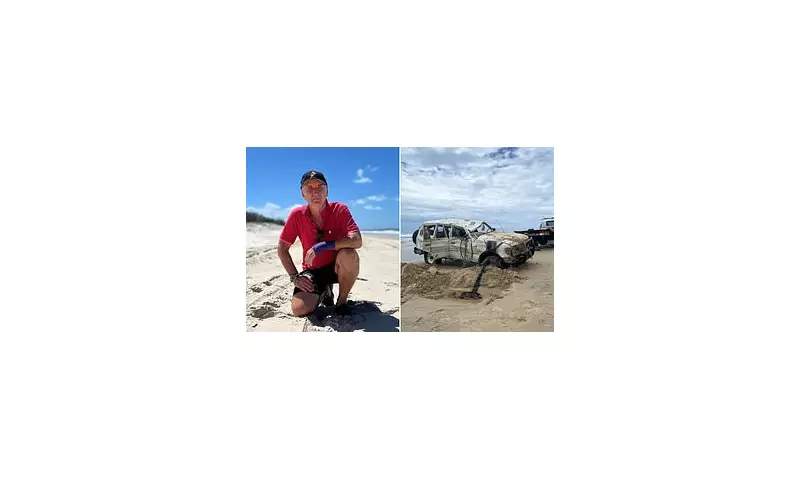
Ecologist Forced to Flee Home Following Violent Backlash
A prominent marine ecologist has been driven from his home after a campaign of death threats erupted in response to his calls for restricting four-wheel-drive vehicles on popular beaches. Professor Thomas Schlacher from the University of the Sunshine Coast, who has long argued that heavy vehicle traffic damages fragile marine habitats, found himself at the centre of a hostile backlash that escalated far beyond professional disagreement.
The Austrian-born academic expected opposition from motorists but was unprepared for the violent nature of the response. The abuse began online, including one comment that asked: 'How many college professors can we bury on a beach?' The situation dramatically worsened when an anonymous note was left in his postbox stating 'we know where you live', accompanied by a photograph of his car.
Fearing for his family's safety, Professor Schlacher made the difficult decision to temporarily relocate his family to the United States. He described the move as unsettling but necessary given the threatening behaviour. 'It is very scary. It actually goes beyond just being a keyboard warrior,' he told Nine News.
Three Decades of Research Reveals Environmental Damage
Professor Schlacher brings substantial scientific authority to the debate, having spent thirty years studying beach ecosystems across Australia. His extensive research demonstrates that even minimal 4WD activity causes what he describes as 'unequivocal' and long-lasting damage to dune vegetation, which can destabilise entire coastal ecosystems.
His findings also reveal that vehicle disturbance drastically reduces bird diversity, abundance, and breeding success. The problems range from crushed nests and killed chicks to entire populations being driven away from their natural habitats. Professor Schlacher noted that some behaviour goes beyond accidental damage, stating he has witnessed drivers 'actually going directly at birds, driving straight at them, trying to hit them.'
The debate has reached its most intense level on Bribie Island, off Queensland's south-east coast, where up to 1,000 4WDs converge on weekends, particularly during summer months. A 23km stretch of Ocean Beach remains open to 4WDs, making it a major attraction for off-road enthusiasts.
Balancing Conservation with Recreational Access
Contrary to claims from critics, Professor Schlacher insists he isn't advocating for a total ban on beach driving. Instead, he has proposed reserving half the beach at popular sites across Queensland, New South Wales and Victoria for vehicles, while leaving the remainder protected for wildlife conservation.
4WD enthusiasts argue that restrictions would unfairly punish responsible drivers. Brett Lynch, president of the Bundaberg 4WD Club, emphasised their commitment to responsible driving, telling Nine's Today program: 'We have a code of conduct that we use to train our members on ways to reduce the impact when they're driving on beaches.' He warned that a total ban would have 'devastating effects' on tourism and local communities.
The ecologist has also pointed to what he sees as a conflict within the Queensland government, highlighting the dual environment and tourism responsibilities held by state minister Andrew Powell. 'The government only listens to the 4WD lobby,' Professor Schlacher claimed. 'Because they're powerful and as you have seen, they're violent.'
Minister Powell has rejected calls for 4WD restrictions, maintaining that Queensland's tourism economy depends on maintaining access to iconic beaches. He argues that conservation and tourism can coexist under the state's current strategy, supported by rangers and police officers who enforce environmental protections. Revenue from camping and vehicle permits is reinvested into beach management programs.
However, Professor Schlacher remains unconvinced by this approach, stating unequivocally: 'The evidence is massive and it's solid and it's unambiguous. It's worldwide. And you can just basically say it is the worst thing you can do in terms of how to use a beach.'





